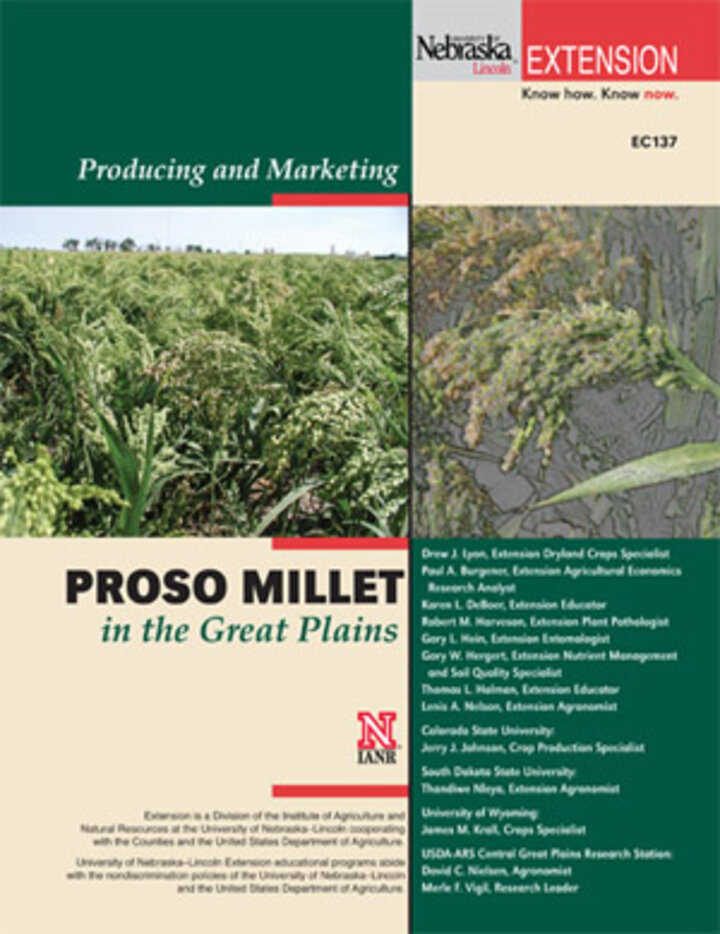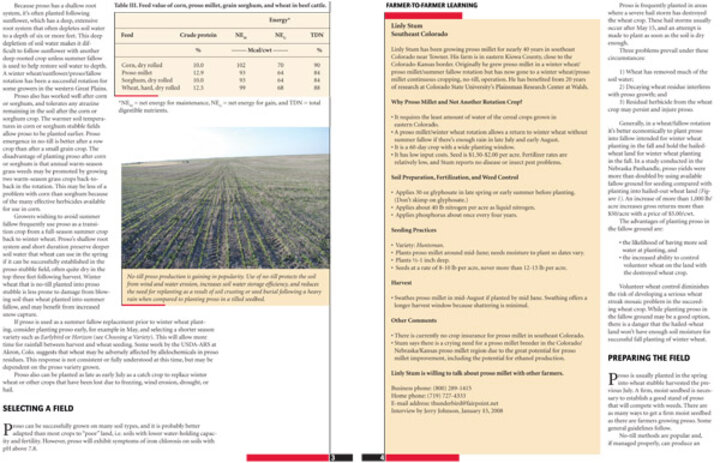June 27, 2008

UNL Extension has reissued "Producing and Marketing Proso Millet in the Great Plains," a 20-page guide to growing and selling the crop. The guide has a number of improvements over the first edition, published in 1995, according to Drew Lyon, dryland crops specialist at the UNL Panhandle Research and Extension Center in Scottsbluff.
Information on proso millet varieties, weed control, cost of production, and marketing have been updated. In addition, there are new sections on water use and yield and growth rate. Under the harvesting section, information has been added about harvesting with a stripper header.
Also new are seven farmer-to-farmer interviews where proso growers share their experiences with the crop, including why they grow it and how they they grow and harvest it. The growers are from Colorado, western Nebraska, Wyoming, and South Dakota.
Nebraska, Colorado and South Dakota are responsible for almost all of the nation's proso millet production. Of the nations' 475,000 acres, Nebraska has 110,000 acres, South Dakota 110,000, and Colorado 255,000.
Proso millet is a warm-season grass that will produce seed 60 to 90 days after planting. In the United States it is used mostly for bird and livestock feed, although it is used for human consumption in other countries.

|
| UNL's new Extension Circular, Producing and Marketing Proso Millet in the Great Plains (EC137) features farmer-to-farmer interviews and research-based recommendations for both experienced growers and those new to the crop. |
Lyon is the primary author of the updated publication; co-authors are from UNL, Colorado State University, South Dakota State University, the University of Wyoming, and USDA's Agricultural Research Services Central Great Plains Research Station in Colorado.
Extension Circular EC137, "Producing and Marketing Proso Millet in the Great Plains," costs $3.50. To buy it, contact the local Extension office or go to UNL's Extension Publications Web site and click on the "Ordering Print Pubs" link on the left side of the page. (It should be available in the Publications On-line Catalogue after July 2.)
News Release
Panhandle REC, Scottsbluff
